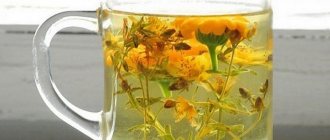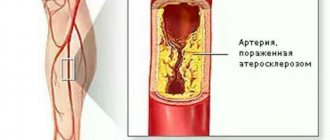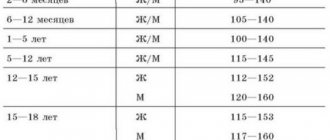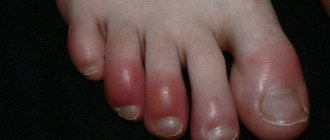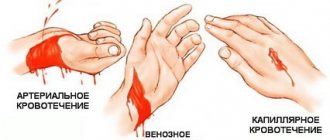Increased blood pressure and body temperature to 37 and above, symptoms of colds and flu
Exacerbation of chronic pathologies is closely related to seasonal diseases. Emergency doctors note an increase in the number of calls to hypertensive patients during an epidemic of influenza and ARVI. Let's figure out whether blood pressure can increase during a cold, how it manifests itself, and how you can help yourself at home, this article will tell you.
The effect of colds and flu on the body
The common cold and flu are diseases accompanied by an increase in body temperature. This causes surges in blood pressure, which is dangerous not only for hypertensive and hypotensive patients, but also for completely healthy people.
Doctors explain what is happening to a change in blood flow due to hyperthermia. Even when the disease is mild, the immune system is forced to use all available reserves to fight it - to increase body temperature. When exposed to high temperatures, blood becomes thicker and blood flow slows down. Sometimes, this leads to vasospasm, which can provoke a sharp rise in blood pressure - a hypertensive crisis.
The human body is a coherent closed system that ensures the functioning of organs and tissues. An increase in temperature becomes a factor in the occurrence of stress - a trigger for a rise in blood pressure.
To prevent possible deterioration of well-being, hypertensive patients need to begin treatment when they detect the first symptoms of a cold.
Causes of increased blood pressure during colds
Exposure to pathogenic microorganisms during flu and colds leads to increased blood pressure. This can happen for a number of reasons:
- The tone of the sympathetic nervous system increases due to infectious effects.
- Stress occurs due to hyperthermia as the immune system fights against infectious or viral agents.
- Vascular spasm occurs due to incorrect use of medications that reduce body temperature.
Medicines to reduce fever and relieve nasal congestion usually include phenylephrine. This substance has a pronounced vasoconstrictor property. Increased blood pressure is a common occurrence due to self-medication (exceeding the dose of medications), and does not comply with bed rest.
At the same time, teenagers, people with obesity, thyroid diseases, and mentally unstable individuals are at risk.
Possible symptoms
Symptoms of colds and viral diseases are muscle pain, chills, fever, cough, rhinitis. The signs below often indicate a possible increase in blood pressure during a cold.

For people who do not suffer from hypertension:
- throbbing pain in the temporal region;
- dizziness;
- weakness;
- noise in the head;
- blood from the nose;
- vomit.
For people with hypertension:
- pain behind the sternum on the left;
- feverish condition;
- numbness of the limbs;
- deterioration of coordination;
- decreased visual function;
The appearance of one or more of these symptoms should be a reason to conduct tonometry, and then take the necessary measures to stabilize the condition.
Features of drug therapy
For people suffering from arterial hypertension, treatment of ARVI and influenza has its own characteristics. To avoid increases or changes in pressure, patients are not recommended to:
- Use caffeine-containing drugs (Citramon, Coldrex).
- Use cold remedies that contain phenylephrine.
- Drink vodka (alcohol interferes with the action of medications).
- Smoking (nicotine causes vasoconstriction).
- Drink drinks containing caffeine (increases the load on the walls of blood vessels due to increased blood circulation).
Hot baths, steam baths, and wraps, which raise body temperature, are also contraindicated. It is necessary to strictly follow medical recommendations and maintain bed rest.
Doctors often do not advise healthy adults to lower their temperature to 38.5 o. For hypertensive patients, this advice does not apply. They are recommended to start drug therapy at 37.5 o, using Paracetamol, Aspirin.
Homeopathic medicines Antigrippin will help alleviate the condition, as well as Aqualor for rinsing the nasal passages.
To prevent pressure surges during a cold from taking you by surprise, people with hypertension should always have quick-acting antihypertensive drugs: Nifedipine, Anaprilin, Captopril.
Hypertensive patients are strictly prohibited from self-medicating. Even in the case of a common cold, the doctor must make all the appointments and select the optimal dosage of medications.
How can I help at home?
Traditional medicine will help alleviate the condition of a sick person at home. The most popular of them are inhalations. To prevent blood pressure from rising during a cold, it is better to use essential oils instead of boiled potatoes, according to your grandmother’s recipe.
Oils of clove, thyme, and cinnamon are recommended as an antiseptic. Geranium, fennel, and mint oils are considered antiviral. Eucalyptus, cedar, and chamomile oils are immunostimulating.
If inhalation is difficult, it is recommended to light an aroma lamp.
To quickly get rid of a runny nose, instead of nasal sprays that include phenylephrine, it is recommended to rinse the sinuses with a weak saline solution.
Symptoms of a cold or flu are perfectly relieved by teas made from medicinal plants: chamomile, rose hips, raspberries, currants, with the addition of honey. Also useful would be vitamin-rich juices freshly squeezed from carrots, radishes or beets. But the best solution to replenish your supply of vitamins would be fresh or frozen wild berries: raspberries, cranberries, blueberries.
Prevention measures
Treatment of a cold or flu for a hypertensive patient is fraught with certain difficulties. With this in mind, during the peak of a seasonal epidemic it is necessary to take measures to prevent the disease:
- avoid crowded places;
- postpone friendly visits to those who are already sick;
- wear a protective medical mask on public transport;
- apply Oxolinic ointment to the nasal mucosa before leaving the house;
- have a handkerchief soaked in lavender oil;
- try to eat more garlic (you can do it after heat treatment).
In addition, it is worth strengthening your diet with fortified foods (vegetables, fruits, berries). Rest more, control stressful situations.
How are colds related to high blood pressure?
Some patients with hypertension often notice that their blood pressure rises when they have the flu. Such a deviation is indeed possible; fluctuations are associated with disturbances in the immune properties of the body in the first place.
During ARVI, the immune system suffers greatly because it spends all its reserves and strength fighting pathogenic microorganisms.
In some cases, blood pressure increases in people who have not previously experienced hypertension. Such changes may be closely related to the following processes:
- Changes in the tone of the nervous system. Indeed, many people with the manifestations of colds experience loss of strength and a general deterioration in well-being; they are overcome by apathy. There are known cases when the pressure rose when using a nebulizer.
- The invasion of pathogenic components into the human body is always stressful. Infectious processes provoke an increase in blood pressure due to the fact that all organs and systems of the body work to the limit of their capabilities.
- The patient's blood pressure rises with a cold if treatment has been delayed. Such situations often arise because patients, for whatever reason, postpone their visit to the doctor.
Blood pressure during a cold
The symptoms of acute respiratory viral infection (ARVI) are familiar to every person. In chilly and wet weather, if you get nervous, don’t get enough sleep, or lose your diet, you’ll definitely hear a loud sneeze somewhere nearby. And the immune system can only watch with a guilty look the flight of approaching droplets of someone else’s saliva with viruses. The defender cells (macrophages and leukocytes) do not have the strength to fight, because in the crazy rhythm of life there was no time to strengthen the immune system.
No less than other people, hypertensive patients are susceptible to influenza and ARVI. How are colds and blood pressure related?
How does blood pressure change during ARVI?

A virus is a defective microorganism, and it can only reproduce inside a living cell (it reprograms all its “factories” to produce its components). But when many clones have already been “stamped”, the time comes for their triumphant exit from the captured object. The body's native cell literally bursts at the seams, and the swarm of viruses spreads further, capturing new strategically important units.
The body's immune system tries to destroy viral particles and those cells captured by them that still survive. One mechanism of defense (or even attack) is fever. It has the following influence:
- mobilizes the body's functional reserves (in a warm environment all processes proceed faster);
- activates T and B lymphocytes, makes them work harder;
- accelerates the process of transformation of B cells into plasma cells (they have the ability to produce proteins that are toxic to foreign microflora - immunoglobulins);
- activates enzymes (proteins that accelerate the rate of biochemical reactions) that inhibit the proliferation of viruses and bacteria;
- slows down the ability of foreign microflora to reproduce (cloning);
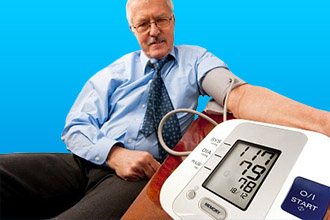
increases the sensitivity of bacteria to antibiotics;- increases the rate of release of the body from toxins (released by viruses, bacteria and dying cells) through increased sweating, increasing the intensity of liver enzymes and kidneys.
For all its beneficial qualities, it also has negative properties. In particular, at the stage of rising temperature, hypertension may appear. To change the normal value (36.6 ° C) to the “martial position” - 38.0 ° C, or hyperthermia, the peripheral vessels must narrow significantly. In this way, they will minimize the transfer of heat to the environment, and stimulation of the temperature regulation center in the brain by cells of the immune system will lead to fever, and not to heating the room.
Vascular spasm at the stage of rising temperature is one of the mechanisms due to which blood pressure rises during a cold.
The occurrence of hypertension during the infectious process is also facilitated by:
- the direct effect of hyperthermia on the main pacemaker of the heart - the sinus node (as a result, for every extra 0.5 ° C of body temperature, the myocardium produces 10 additional beats per minute);
- activation of the sympathetic part of the autonomic nervous system (it is responsible for fight and survival, the heart beats more often and stronger under the influence of adrenaline).
To reduce the temperature after defeating the virus, the body needs to increase heat transfer. A command is sent to the peripheral vessels to expand, hot blood approaches the skin and cools. Blood pressure during this period is normal or low. A sharp drop in temperature creates a particular danger: rapid widespread expansion of peripheral vessels leads to abnormal hypotension. Vital organs are deprived of blood flow, and irreversible pathological changes may occur in them.
The influence of infection on the course of hypertension
The infectious process can be superimposed on a chronic disease (arterial hypertension). Their interaction leads to:
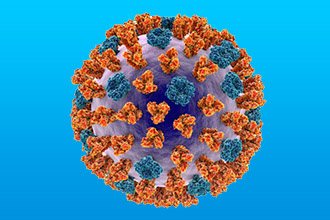
exacerbation of a chronic disease (development of a hypertensive crisis with adverse consequences);- complications: pinpoint hemorrhages resulting from damage to the mucous membrane of the nasal cavity by the influenza virus against the background of high blood pressure can cause bleeding;
- some viruses (influenza A, B, Coxsackie) give the picture of ARVI, but at the same time affect the heart, leading to damage and destruction of cardiomyocytes (hypertension is complicated by myocarditis);
Increased blood pressure during ARVI
Summarizing what was said earlier, high blood pressure during ARVI as a result of direct interaction between the virus and the body occurs:
- as a response to activation of the sympathoadrenal system;
- due to the effect of hyperthermia on the sinus node;
- during spasm of peripheral vessels, causing a rise in temperature.
Risk factors that can be influenced are:
- taking decongestates (drugs for the common cold, which rid the nasal cavity of mucus due to vasoconstriction);

The active substance of the drops is an adrenergic agonist. It affects the receptors of the vascular wall, causing it to contract. However, the medicine is absorbed by the nasal mucosa, and its effect extends to the entire body, and a sharp narrowing of peripheral vessels can easily cause a hypertensive crisis.
- steam inhalation (in a hot environment with a low oxygen content, the body turns on deep breathing, which helps remove phlegm and increases blood pressure);
- unwanted side effects of unauthorized prescribed medications (rarely does anyone carefully read the huge sheet called “instructions for the drug”).
Pressure during infection: what to treat first?
To answer this question, it is necessary to decide what consequences of which pathology can threaten the patient’s life, and what he can tolerate.
| Manifestation | The essence | Danger | conclusions |
| Acute viral respiratory disease | |||
| Runny nose | Mucus in the nasal passages, making it difficult to breathe | Drip down the back of the throat will cause a cough. | You should not use decongestants; it is better to stick to safe rinses with saline solutions. |
| Fever | The body's protective reaction | Exceeding the threshold of 42°C will lead to the destruction of proteins | A dangerous level of hyperthermia is possible only with severe influenza. The temperature rises gradually, it needs to be regulated with antipyretics |
| Cough, sneezing | Removing sputum from the respiratory tract and mucus from the nose | Ingestion of secretions, aspiration back into the bronchi | It is not life-threatening for a conscious patient |
| High pressure | |||
| Headache | Dilation of the walls of the blood vessels of the head | Stroke - the wall cannot withstand, ruptures and bleeding occurs in the brain | The result may be total or partial disability. The threat of disability and death is high, it is necessary to treat the crisis |
| Heartbeat | Increased heart function and oxygen demand | If there is not enough oxygen, a large area of necrosis will occur. | Myocardial infarction will lead to a deterioration in the patient’s quality of life if he can be saved |
In most cases, a runny nose due to ARVI is not worth using drugs that can cause a sharp jump in blood pressure. And to maintain the patient’s health, stabilizing hemodynamics is more important than stopping nasal congestion.
What does a change in pressure indicate after a respiratory infection?
The pressure may be unstable if there are complications (overt or hidden):
- influenza pneumonia;
- viral myocarditis;
- damage to the brain and its membranes.
After recovery, a person may feel weak for some time, accompanied by slightly lower blood pressure.
In what cases can blood pressure decrease due to a viral infection?
With influenza, high blood pressure is less common than with ARVI. This disease (especially its severe forms) is accompanied by significant intoxication. The substances released by the virus cause blood vessels to dilate, and blood pressure levels drop.
In acute respiratory viral infections, hypotension accompanies the stage of temperature decrease, since at this time the vessels are dilated to increase heat transfer.
conclusions
Summarizing the above, we can point out a direct connection between increased blood pressure and the infectious process. Sometimes we talk about complications after a cold, which can directly aggravate the course of hypertension. A patient with high blood pressure needs to increase the number of control blood pressure measurements during ARVI in order to prevent the development of a crisis and other cardiac complications.
The following sources of information were used to prepare the material.
Blood pressure during a cold
The occurrence of viral diseases in people is accompanied by different symptoms. Flu pressure (high and low) sometimes occurs as a concomitant symptom. It happens that an increase in temperature provokes high blood pressure. Increases occur with colds and flu. However, for some people, based on individual characteristics, blood pressure may decrease.
High blood pressure and flu
Acute respiratory viral infections and colds provoke pressure surges. High blood pressure with the flu is common.
This happens because during the course of the disease there is an increase in the tone of the nervous system. Symptoms such as pain in the temporal region of the head and pulsation in the temples are noticeable both in hypertension and in acute respiratory viral infections. It happens that a headache in a patient with colds and viral diseases is also observed with increased blood pressure. Thus, as the temperature rises, the pressure in the skull increases. Since an unexpected illness (and acute respiratory infections most often appear this way) is always stressful, stressful situations provoke the release of adrenaline into the blood. Adrenaline is involved in the occurrence of hypertension. Stressful situations with influenza or ARVI will provoke an increase in blood pressure above normal.
The wrong choice of medications during spontaneous treatment at home causes blood pressure to rise. Taking vasoconstrictors causes blood vessels to contract quickly. Blood flows through the vessels in insufficient quantities. In this case, hypertension is observed. Therefore, it is not recommended to take medications without a doctor’s prescription, including hypertension. Medicines containing phenylephrine are especially dangerous. Therefore, when choosing medicines, pay attention to the components of the medicine. High blood pressure can occur from uncontrolled use of medications, or from drugs that have a side effect in the form of hypertension.
When does the rate decrease?
Against the background of a cold, the readings may occasionally decrease. With general weakness of the human body and nausea, low blood pressure makes itself felt. But no special treatment is required other than taking antiviral drugs. Low blood pressure during a cold may indicate low hemoglobin levels in the blood. You don't need to do anything special to raise it. It is enough to get a full night's sleep, rest, and, if necessary, take No-shpu or Nicotinic acid. After all, most often this is a one-time reaction of the body to a cold.
How to treat a cold with hypertension?
Colds and flu should be treated with medications that are safe for hypertensive patients.
It is necessary to pay special attention to the constituent components of the drug. For colds, take powdered, tablets and syrups. Since not all drugs are suitable in composition for hypertensive patients, the patient must tell the doctor about hypertension. At high levels, it is necessary to exclude drugs with phenylephrine and caffeine. The therapist prescribes medications like “AntiGrippin”. The following medications are used to treat colds and hypertension:
- powders, syrups, tablets (to reduce fever);
- antihistamines;
- nasal drops;
- complex preparations;
- traditional medicine.
Return to contents
For fever and body aches
There is no need to lower the temperature to 38.2 degrees at all. Let the body fight viruses on its own. If a person feels unwell, the temperature can be lowered with special medications. The temperature is brought down mainly with tablets or syrups. But products like Panadol Extra contain caffeine in their ingredients. This constituent substance can provoke high blood pressure. You can bring down an elevated temperature with Paracetamol or regular Aspirin. When your body aches and your temperature rises, you can use:
Folk remedies for normalizing blood pressure
Remember that you can lower high blood pressure not only with special medications, but also with some folk remedies.
For example, you can brew valerian or lemon balm. It is especially useful to use fresh decoction.
Vegetable juices, in particular those made from carrots, beets or radishes, have certain benefits in the treatment of hypertension, including those developed against the background of influenza infection. You can add a spoonful of honey to these drinks and drink them three times a day. Moreover, the fresher the juice, the better. The vitamins they contain make blood vessels more elastic.
Rosehip tea also helps (after brewing it, you need to let it steep for at least six hours). This plant has a positive effect on blood flow, improves the functioning of the heart and removes cholesterol from the arteries.
In addition to normalizing blood pressure, it is important not to forget about treating the underlying cause.
One way or another, changes in pressure during ARVI can and should be fought. But, first of all, the root cause of this symptom, that is, the immediate acute respiratory viral infection, should be treated. To do this, you will need the help of a qualified doctor. Such serious illnesses should never be treated independently.
Patients prone to high blood pressure notice that it can rise due to various factors. For example, hypertension can be caused by stress, physical activity or high air temperature. Can acute respiratory infections and flu affect the tonometer readings, and if so, how?
Can blood pressure increase with a cold?

When you have a cold, the body is sharply mobilized. Even if the form of the disease is mild, all systems begin to fight the infection. Sometimes vasospasm occurs.
If there are no chronic pathologies, then there is usually no increase in pressure. But if the vessels are already affected, then there is a high probability of developing hypertension.
In people suffering from this disease, blood pressure will immediately rise. A hypertensive crisis may occur. Even taking pills regularly won't help.
Therefore, high blood pressure during a cold requires mandatory medical care..
How does a cold affect blood pressure?
There is a connection between colds and hypertension. A trend has long been noticed: as the temperature rises, so does the pressure. This is noticed even in hypotensive patients. This is explained by changes in the functioning of the circulatory system when a high temperature occurs.

The human body is an integral system and for normal functioning all organs must work well. And hypertension is considered a serious disease. With this pathology, a person’s well-being worsens even when in contact with external irritants. Both atmospheric pressure and your own body temperature influence.
Common causes of increased blood pressure during colds
With ARVI, the immune system suffers greatly. It includes reserve forces to eliminate pathogenic microorganisms.
Blood pressure readings often change in hypertensive patients during a cold. This is closely related to certain processes :
- Penetration of pathogenic components . This is a lot of stress. Infections provoke an increase in blood pressure by causing all systems to work at their limit.
- The nervous system malfunctions . When a person has a cold, he feels a loss of strength and is overcome by apathy.
- Blood pressure will naturally increase if left untreated . A visit to the clinic cannot be postponed.
The reason is also improper treatment. Certain medications and treatments can cause high blood pressure :
- Overdose of drugs.
- Ignoring bed rest.
- Antibiotics. Without a doctor's prescription, they can lead to unpredictable consequences.
You need to be careful with inhalations . During this procedure, contact with hot steam occurs, and this can increase blood pressure.
Symptoms and causes in the absence of hypertension
Even in this case, blood pressure may increase due to ARVI . This usually occurs with concomitant diseases:
- For obesity.
- In the presence of emotional instability.
- For vascular pathology.
- Malfunction of the endocrine system.
- Hyperfunction of the thyroid gland.
- Occurs in adolescents during puberty.

During this period, the following symptoms appear:
- Noise in the head area.
- Pulsation in temples.
- Dizziness.
- Vomit.
- Sometimes nosebleeds occur.
- Fast fatiguability.
It is necessary to measure the pressure immediately. If it exceeds 140/90, you need to visit a doctor.
Symptoms and causes of hypertension
In this case, the patient undergoes antihypertensive therapy, which in case of a cold does not exclude a crisis. It can also occur with proper treatment.
This is accompanied by fever, as well as intoxication. All this is manifested by typical symptoms :
- Numbness in some areas of the body.
- The appearance of floaters in the eyes.
- Balance imbalance.
- Heart pain.
But usually such people are aware of their illness and always have the necessary medications with them.
If an hour after taking the drug, there is no improvement and the pressure remains, then emergency help is needed . During the period of a cold, it is often necessary to change the treatment regimen or increase the dose of the medicine.
We should never forget that against the background of ARVI, blood pressure can increase even in absolutely healthy people. The doctor needs to take this into account when the patient presents with characteristic complaints.
Video: “Symptoms and treatment of colds, ARVI, flu”
Can it increase with ARVI?
It should be noted that with a cold, the increase in blood pressure sometimes goes unnoticed . This is explained by the fact that due to the deterioration of general health, the patient does not pay attention to the symptoms:
Therefore, it is necessary to have a tonometer at home that will detect changes in indicators.
The main causes of pressure surges during colds are:
- The tone of the sympathetic nervous system increases significantly.
- Stress combined with malaise.
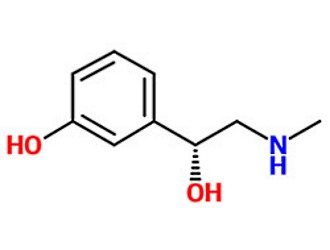
Self-treatment. Many patients ignore dangerous symptoms and do not consult a doctor.
But only a doctor can prescribe medications to a patient who is prone to hypertension. Most drugs have a negative effect on blood vessels.
You must carefully read the leaflet attached to the medicine. A very dangerous substance in the composition for hypertensive patients is phenylephrine, which constricts blood vessels. Unfortunately, it is found in most flu medications.
We can conclude that the main reason for increased blood pressure during a cold is illiterately selected remedies .
Therefore, at the first stage of the disease, it is better to be treated with proven folk remedies. As the disease progresses, you must consult a therapist who will select the necessary medications.
Does blood pressure increase with the flu?
Not only can it, but it is common. It often occurs as an accompanying symptom. An increase in body temperature will naturally increase blood pressure.
A sudden illness, and that’s what the flu is, is stressful. This situation causes the release of adrenaline, which is actively involved in the development of hypertension. The level of pressure will depend on the form of the virus .
| Light form: |
|
| Moderate disease: |
|
| Severe form of influenza: |
|
It is believed that increased blood pressure during influenza is associated with inflammation of the respiratory system.
Treatment of pressure during colds
A person often does not pay attention to a cold and suffers it on his feet, swallowing pills or using folk advice. Ignoring bed rest and taking antiviral drugs negatively affects blood vessels and the heart. The main components of tablets and powders cause increased blood pressure and rapid heartbeat.
Medication
How are colds treated with hypertension? It all depends on the clinical manifestations and severity of the disease. But you should definitely seek help from a doctor and lie down for a few days. If it is not possible to visit a specialist, you can get advice by phone. There is no need to self-medicate; it is better to check with a doctor what medications you need to take.
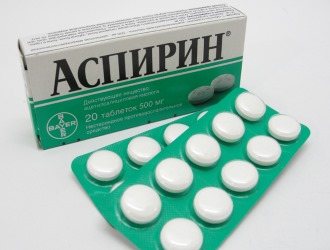
At the initial stage of hypertension, the temperature begins to drop at 38.5 degrees.
To lower a high temperature, hypertensive patients are required to take aspirin . This remedy thins the blood and eliminates the risk of blood clot formation. The medicine is contraindicated if there is a stomach ulcer or individual intolerance.
Sometimes aspirin can be replaced with nurofen , as well as paracetamol . But they must be without additives.
It is not forbidden to take anti-grippin. The medicine is considered harmless because it does not contain caffeine. Analgin is taken only as prescribed by a doctor . It reduces the body's defenses by reducing the number of white cells.
If you have high blood pressure, nasal drops that cause vasoconstriction are prohibited. As a result, arrhythmia occurs and blood pressure rises.
It is preferable to take homeopathic medicines. “Aqualor” with sea salt in its composition has proven itself to be excellent. We also recommend Pinosol, which is based on herbal ingredients. It is advisable to rinse your nose with saline solution.
If you have a severe runny nose, antihistamines are sometimes prescribed . They can be easily purchased at the pharmacy, but hypertensive patients should avoid them. These remedies will free up the nose, but may also increase blood pressure.
Folk remedies
Traditional medicine recipes do not kill the virus, but only relieve symptoms.
Cranberry is an excellent remedy for viral infections. The body's resistance increases and its functioning is normalized.

Some inhalations are great for getting rid of colds. Eucalyptus oil, hot potato and fir are used.
A good remedy is infusions of raspberries and rose hips with honey.
By the way, treatment with vodka is prohibited, and you should not lie in a hot bath . This can lead to serious consequences.
Please note that before using prescriptions, you should consult your doctor.
Prevention
To prevent increased blood pressure during a cold, you should first eliminate the manifestations of ARVI. To do this, you must observe certain restrictions in everyday life :
- In the midst of viral epidemics, it is not recommended to attend mass events.
- Avoid contact with sick people.
- When going outside, it is advisable to lubricate your nose with a special ointment so that viruses cannot settle on its mucous membrane.
- You can wear a scarf soaked in lavender essential oil.
- It is advisable to periodically eat a clove of garlic. It will strengthen the immune system and destroy germs.
As you can see, preventive measures are simple. But compliance with them will require special forethought.
Conclusion
If a cold is added to hypertension, then you need to immediately change your lifestyle, otherwise the pathology will progress. This applies to nutrition, physical activity and habits. There are many nuances and you will have to limit yourself in many ways.
What to give up:
- Alcohol . Ethanol provokes side effects from medications taken.
- Tobacco . Nicotine causes vasospasm, which contributes to a sharp increase in blood pressure.
- Excessive loads . Acceleration of blood flow causes arterial hypertension.
- Stress . The reaction is the activation of sympathetic centers and constriction of blood vessels.
- Harmful work . The emissions from many manufacturing plants are similar to those of tobacco.
- Drinks with caffeine . Increased blood circulation affects the condition of blood vessels.
You should be careful when choosing medications - something that can reduce the symptoms of ARVI can increase hypertension. One of the preferred drugs is aspirin .
Lack of proper rest also has a negative impact on the well-being of hypertensive patients during a cold.
How and with what to treat colds with hypertension: traditional methods and drug treatment
Hypertension is a disease characterized by a significant increase in blood pressure. As a result, the functioning of the heart is disrupted, changes occur in the functioning of vital systems and the entire body as a whole, especially when a cold develops with hypertension. Treatment of heart and colds should be interconnected.
Traditional treatment
People rarely pay attention to cold symptoms. Work schedule, family and many household chores require constant attention. Therefore, a person often suffers from a cold on his feet, maintaining a normal state with various pharmaceutical and folk remedies.
It is the absence of bed rest when taking antiviral drugs that greatly affects the condition of the cardiovascular system. The active ingredients contained in cold powders increase blood pressure and cause increased heart rate.
In this case, the question arises: how to treat a cold with hypertension? The choice of drugs depends on the symptoms and degree of progression of the disease. In the optimal case, you need to visit a doctor, take sick leave, or at least rest at home for a couple of days.
If it is not possible to go to the hospital, it is better to call your doctor and find out which medications are safe and effective for treating colds in hypertensive patients.
How does a cold affect the condition of hypertensive patients?
Colds in people with high blood pressure place a greater strain on the cardiovascular system. This is especially evident when body temperature rises, so the issue of eliminating hyperthermia should be given sufficient attention. It is necessary to consult with a doctor in advance and determine how and with what to treat a cold with hypertension, so as not to cause a hypertensive crisis.
If hypertension is at the initial stage, you need to lower the temperature when the thermometer reading is 38.5 degrees Celsius. If high blood pressure is complicated by coronary heart disease, kidney disease or atherosclerosis, it is necessary to take antipyretic drugs already at 38 degrees Celsius.
Antipyretic drugs for hypertension
An increase in temperature will cause anxiety in people who do not know how to treat a cold with hypertension. To reduce temperature in hypertension, it is better to use aspirin. The main advantage of this drug is blood thinning, which reduces the likelihood of blood clots forming in the bloodstream.
Important! Aspirin should not be taken by people with gastric ulcers and individual intolerance to the drug. In this case, it should be replaced with Nurofen or paracetamol (the tablets should not contain any additives).
Hypertensive patients are strictly prohibited from using complex medications for colds, which are widely advertised on television. Such powders or tablets contain a substance that causes an increase in heart rate and blood pressure.
The only approved remedy for colds is Antigrippin. It contains no caffeine and phenylephrine, so it does not cause an increase in blood pressure.
It is not recommended to use analgin on your own to reduce fever. This drug can be prescribed to hypertensive patients only in the absence of the effect of other antipyretics. Analgin helps reduce the number of white cells in the blood. As a result, the body is defenseless and can catch any infection.
Using nasal drops
Hypertensive patients are prohibited from using vasoconstrictor nasal drops. In addition to the vessels of the nasal cavity, drugs can also affect others, and the narrowing of blood vessels will provoke an increase in blood pressure, increased heart rate and arrhythmia.
It is worth giving preference to homeopathic drops. You can use “Aqualor”, which contains sea water, or plant-based “Pinosol” drops. Nasal decongestants should not be used for more than three days in a row.
To eliminate a runny nose, it is better to rinse the nasal cavity with saline solution. Knowing the features of the action of drugs and their composition, you will not ask the question of how to treat a runny nose with hypertension.
Folk remedies for colds and hypertension
The most popular folk method is inhalation. For this purpose, you can use freshly boiled potatoes or steam baths with the addition of essential oils of eucalyptus, juniper or fir.
You can take teas based on berry leaves (currant, raspberry, rowan, lingonberry, rose hip). If you add a spoonful of honey to this tea, the anti-cold effect will increase several times.
Traditional methods of treating colds with hypertension are used to eliminate the symptoms of the disease, but are not able to kill the virus or infection that may be in the body.
Cranberries are very popular in the treatment of colds and high blood pressure. Eating berries or teas made from cranberry leaves can restore the body's functioning, increase immunity and provide a person with protection from viral or bacterial infections.
Can blood pressure increase with a cold?
High blood pressure during a cold is not uncommon. This is due to the fact that ARVI or influenza are an absolute stress for the human body. Due to the resulting stress, the body begins to intensively fight the threat. This leads to vascular tone.
For a healthy person without problems with blood vessels, such tone does not pose any threat. For a person suffering from hypertension or hypotension, it is a completely different matter. That is why it is necessary to know whether blood pressure increases during a cold and what to do about it.

Causes of increased pressure
An increase in blood pressure is associated with the body’s increased work to fight the virus or ARVI. This is expressed in a number of processes:
- penetration of pathogenic microorganisms or infections into the body;
- the body starts working to fight them;
- nervous system failure (apathy and bad mood).
The reasons for increased blood pressure during ARVI may also be improper treatment or its complete absence. Ignoring bed rest or overdosing on medications gives the body additional stress, which leads to vascular strain. When answering the question, whether blood pressure can increase during a cold, it should be understood that the root cause of increased pressure is the virus.
Treatment of ARVI and influenza in hypertension
If a patient has hypertension, it is necessary to be especially careful when choosing medications. Not all cold medications are suitable for hypertensive patients. If you are prone to high blood pressure, you should avoid medications containing caffeine and phenylephrine.
A person with hypertension can also be treated for a cold with folk remedies. However, procedures that affect blood pressure should be avoided. For example, some types of warming compresses can tone blood vessels. The use of mustard plasters and teas with high caffeine content is also not recommended.
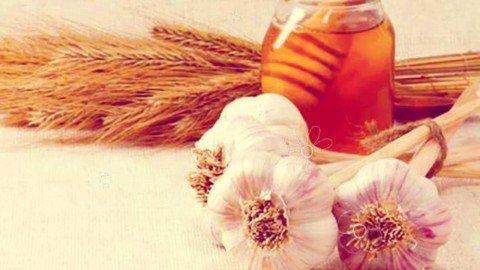
To treat high blood pressure during a cold, it is not recommended to take additional medications that lower blood pressure. They may conflict with cold medications and cause unwanted side effects.
Blood pressure after recovery
After recovery from influenza and ARVI, patients with hypertension sometimes experience persistence of symptoms of weakness. This can manifest itself in dizziness, weakness in the body, darkening of the eyes. In rare cases, hypotension, the opposite of hypertension, may occur.
In such cases, there is no need to panic. The body is simply weakened by the fight against the disease and cannot return to its former form. In this case, the best treatment will be additional rest, healthy sleep and consumption of large amounts of vitamins and microelements necessary to restore strength.
Prevention
To prevent high blood pressure in diseases, you should first of all fight the root cause - hypertension. Curing hypertension or minimizing its manifestations will help avoid a negative reaction to the virus in the patient. Before using medications to treat hypertension and combining them with cold medications, you should definitely consult a specialist.
Prevention
To prevent increased blood pressure during a cold, you should first eliminate the manifestations of ARVI. To do this, you must observe certain restrictions in everyday life :
- In the midst of viral epidemics, it is not recommended to attend mass events.
- Avoid contact with sick people.
- When going outside, it is advisable to lubricate your nose with a special ointment so that viruses cannot settle on its mucous membrane.
- You can wear a scarf soaked in lavender essential oil.
- It is advisable to periodically eat a clove of garlic. It will strengthen the immune system and destroy germs.
As you can see, preventive measures are simple. But compliance with them will require special forethought.

